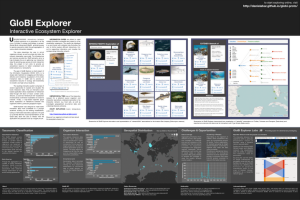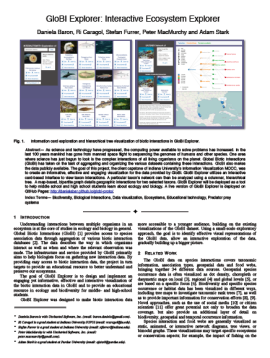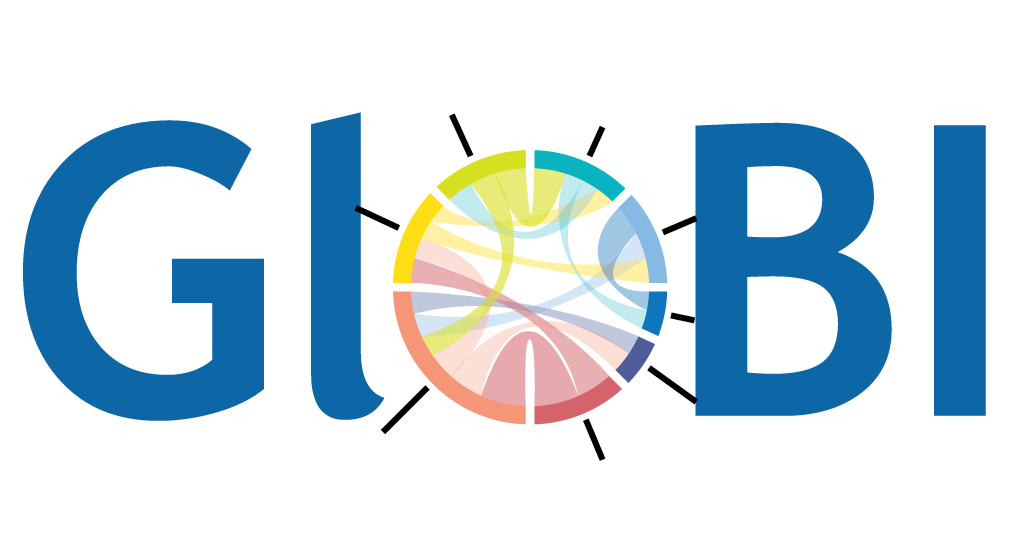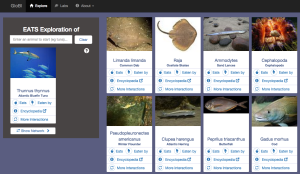Massive Open Online Data

Baron, Daniela; Caragol, Ri; Furrer, Stefan; Macmurchy, Peter; Stark, Adam (2015): GloBI Explorer Interactive Ecosystem Explorer. figshare. http://dx.doi.org/10.6084/m9.figshare.1414252 Retrieved on May 23, 2015.
MOOCs are all the rage. An enormous amount of courses are now available online for anyone who has time and a networked device. When Battushig Myanganbayar, a 15-year-old high school student from Mongolia, aced MIT's Circuits and Electronics MOOC, he found himself in the spotlight and got invited to study at the prestigious institution.
The folks at Indiana University take the idea to the next level: the Information Visualization MOOC organized by Katy Börner et al. not only provides free education, it also gets students to collaborate with real projects that give access to open data. I was excited that our project, Global Biotic Interactions (GloBI), was invited to participate in this unique course for a second year (see IVMOOC 2014 project).

Baron, Daniela; Caragol, Ri; Furrer, Stefan; Macmurchy, Peter; Stark, Adam (2015): GloBI Explorer: Interactive Ecosystem Explorer. figshare. http://dx.doi.org/10.6084/m9.figshare.1414253 Retrieved May 22, 2015.
The IVMOOC-GloBI challenge for this year was to create an engaging experience for high school students to explore food webs in and outside of the classroom. From the start, Daniela Baron, Ri Caragol, Stefan Furrer, Peter MacMurchy, and Adam Stark were eager to learn more about the dataset, provide improvement suggestions, and respond to feedback provided by Jeff Holmes, Marie Studer, and Jen Hammock of the Encyclopedia of Life. I was impressed by what they were able to create in only a short amount of time: a web application, a paper, and show-it-all poster.
I think that this year's IVMOOC project demonstrates the benefits of open data: the use of openly accessible data provides the ability for anyone with an idea and an internet connection to help us better understand the world around us. Not only that, it helps to create Massive Open Online Data (MOOD) communities of citizen scientists and engineers from all over the world to help make the data, and the tools used to access it, increasingly more useful. For example, Sergey Slyusarev, an IVMOOC 2014 alumnus, has identified data issues and is coauthor of rglobi, an R library for accessing GloBI.
Thanks to the IVMOOC class of 2015 (and their organizers) for making this happen!



